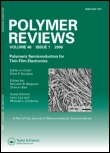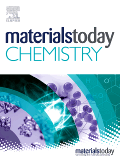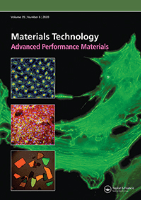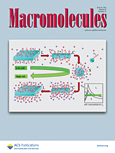
ACS Materials Au
Scope & Guideline
Exploring the Frontiers of Materials Science
Introduction
Aims and Scopes
- Advanced Materials Synthesis and Characterization:
Research on novel methods to synthesize materials, including nanomaterials, polymers, and composites, and their thorough characterization using techniques such as electron microscopy, spectroscopy, and rheology. - Electrocatalysis and Energy Materials:
Focus on materials that enhance energy conversion and storage processes, including electrocatalysts for fuel cells and batteries, as well as materials for solar energy harvesting. - Biomaterials and Healthcare Applications:
Exploration of materials designed for medical applications, including drug delivery systems, tissue engineering scaffolds, and bioactive materials that interact with biological systems. - Sustainable and Green Materials:
Research aimed at developing materials that contribute to sustainability, including biodegradable polymers, materials for environmental remediation, and processes that minimize environmental impact. - Smart and Functional Materials:
Investigation of materials that exhibit responsive behavior to environmental stimuli, including shape memory alloys, hydrogels, and materials for sensors and actuators.
Trending and Emerging
- Nanomedicine and Targeted Drug Delivery:
There is an increasing focus on the development of nanomaterials for medical applications, particularly in drug delivery systems that target specific tissues or cells, enhancing therapeutic efficacy and reducing side effects. - Electrocatalysts for Green Energy:
Research on electrocatalytic materials for sustainable energy applications, such as hydrogen production and CO2 reduction, is gaining traction, driven by the global push for clean energy technologies. - 3D Printing and Additive Manufacturing:
The application of 3D printing technologies in materials science is a rapidly growing area, with research exploring new materials and processes that enable the fabrication of complex structures for various applications. - Smart and Responsive Materials:
Materials that can respond to external stimuli (e.g., temperature, light, pH) are increasingly being studied for applications in soft robotics, sensors, and adaptive systems, reflecting a growing interest in multifunctional materials. - Sustainability and Circular Economy:
Research into materials that promote sustainability, such as biodegradable polymers and those derived from renewable resources, is becoming more prominent, reflecting societal demands for environmentally friendly solutions.
Declining or Waning
- Traditional Bulk Materials:
Research focused significantly on bulk materials has become less prevalent, as the field shifts towards nanostructured and advanced materials that offer superior properties and functionalities. - Conventional Energy Sources:
There is a noticeable decline in studies centered on materials for traditional energy sources like fossil fuels, as the emphasis increasingly turns toward renewable energy technologies and sustainable practices. - Basic Polymer Chemistry:
While polymer science remains important, the focus on fundamental polymer chemistry without application-oriented research seems to be waning, with more emphasis now placed on polymers with specific functionalities or applications. - Static Mechanical Properties:
Studies purely examining static mechanical properties of materials without considering dynamic or environmental factors are less common, as modern research prioritizes performance under real-world conditions.
Similar Journals

Polymer Reviews
Unveiling the complexities of polymer technology.Polymer Reviews, published by Taylor & Francis Inc, is an esteemed journal dedicated to the intricate and evolving field of polymer science. With its ISSN 1558-3724 and E-ISSN 1558-3716, the journal has established a significant presence among researchers and practitioners alike, evidenced by its impressive categorization in the Q1 quartiles across multiple disciplines, including Biomedical Engineering, Materials Chemistry, and Renewable Energy. Since its inception in 2006 and continuing through 2024, Polymer Reviews has consistently aimed to advance the knowledge base of polymer applications and innovations, providing a platform for comprehensive review articles that stimulate further research and inspire practical solutions. The journal, ranking within the top percentile across several Scopus categories, underscores its impact and relevance in a rapidly developing scientific landscape. Though not an open-access journal, it remains a vital resource for those invested in the future of materials science and engineering.

Materials Today Chemistry
Redefining Boundaries in Materials ChemistryMaterials Today Chemistry, published by Elsevier Science Ltd, is a leading journal in the field of materials science, with a primary focus on innovative research and advancements in chemistry relating to materials. Operating under ISSN 2468-5194, the journal has made a significant impact in various specialized areas such as biomaterials, catalysis, colloid and surface chemistry, and polymers, achieving a Q1 ranking across these categories in 2023. With its commitment to high-quality, peer-reviewed content, Materials Today Chemistry serves as an essential platform for researchers, professionals, and students aiming to stay at the forefront of materials research. The journal provides an open access model, enabling wide dissemination of research findings and fostering collaboration among the scientific community. Its esteemed ranking on Scopus, including a remarkable percentile position in materials chemistry and catalysis, underscores its importance in advancing the understanding and application of novel materials. Whether you're delving into cutting-edge synthesis techniques or exploring the latest in materials applications, Materials Today Chemistry remains a pivotal resource for breakthrough discoveries and pivotal insights in the realm of materials science.

MATERIALS TECHNOLOGY
Innovating Tomorrow’s Materials TodayMATERIALS TECHNOLOGY is a prestigious academic journal published by Taylor & Francis Ltd, based in the United Kingdom. With an ISSN of 1066-7857 and an E-ISSN of 1753-5557, this journal has established itself as a vital resource in the fields of Condensed Matter Physics, Materials Science, Mechanical Engineering, and Mechanics of Materials, earning a Q2 ranking in multiple categories as of 2023. With a rich publication history that dates back to the early 1970s, it serves as an essential platform for disseminating innovative research and developments in materials technology. Although not available through Open Access, the journal continues to attract contributions from leading researchers, ensuring high-quality articles that advance knowledge in the materials domain. The journal's commitment to excellence is reflected in its notable Scopus rankings, placing it within the 70th to 78th percentiles across several engineering and physics categories. As a vital resource for researchers, professionals, and students alike, MATERIALS TECHNOLOGY plays a critical role in shaping the future of materials science and engineering.

Nano Express
Catalyzing global dialogue in nanotechnology.Nano Express is an esteemed open-access journal published by IOP Publishing Ltd, dedicated to advancing research in the fields of nanotechnology and materials science. Since its launch in 2020, the journal has swiftly established itself as a vital resource for researchers and professionals, garnering significant recognition in various domains, including biomaterials, electronic, optical and magnetic materials, and polymers and plastics. With a commendable categorization in Scopus quartiles, it ranks in Q2 for Electronic, Optical and Magnetic Materials, and maintains a top percentile in several others, exemplifying its commitment to high-quality research dissemination. Located in the United Kingdom, this journal fosters a global dialogue among experts and newcomers alike, facilitating open access to innovative research that drives the future of nanotechnology. By offering a platform for groundbreaking studies and reviews, Nano Express aims to bridge the gap between theoretical understanding and practical application, championing the development of next-generation materials that have the potential to transform various industries.

ADVANCED FUNCTIONAL MATERIALS
Bridging Theory and Application in Functional MaterialsADVANCED FUNCTIONAL MATERIALS is a leading journal published by WILEY-V C H VERLAG GMBH, prominently recognized in the fields of biomaterials, chemistry, condensed matter physics, and materials science. With an impressive impact factor and a distinguished position in the Q1 quartile across multiple categories including nanoscience and nanotechnology, this journal serves as a vital platform for researchers and professionals committed to innovating in functional materials. Since its inception in 2000, ADVANCED FUNCTIONAL MATERIALS has published high-quality peer-reviewed articles that push the boundaries of materials science, exploring new frontiers in electronic, optical, and magnetic materials. The journal's dedication to open access ensures that its groundbreaking findings are readily available to a global audience, fostering collaboration and knowledge-sharing among scholars and practitioners in the field. For those seeking to stay at the forefront of materials research, ADVANCED FUNCTIONAL MATERIALS is an essential resource.

MACROMOLECULES
Leading the Charge in Inorganic and Organic ChemistryMACROMOLECULES, published by the American Chemical Society, is a premier journal in the fields of inorganic chemistry, materials chemistry, organic chemistry, and polymers and plastics. Since its inception in 1968, this influential journal has established itself as a vital resource for researchers, professionals, and students, showcasing cutting-edge research and advancements in the study of macromolecules and high-performance polymers. With a distinguished impact factor and consistently ranking in the top quartiles (Q1) across its relevant categories, MACROMOLECULES is recognized for its high-quality publications that contribute significantly to the scientific community. The journal is accessible in both print and electronic formats, facilitating rapid dissemination of knowledge. By providing a platform for innovative studies and groundbreaking discoveries, MACROMOLECULES continues to play a crucial role in shaping the future of materials science and polymer research.

ADVANCED MATERIALS
Driving Excellence in Materials ResearchAdvanced Materials, published by Wiley-VCH Verlag GmbH, is a premier academic journal that serves as a crucial platform for cutting-edge research in the field of materials science and engineering. With an impressive impact factor and ranking among the top tiers in various categories, including Materials Science, Mechanical Engineering, and Nanoscience, this journal is recognized for its high-quality contributions and relevance to contemporary research challenges. Spanning from 1989 to 2024, Advanced Materials not only features groundbreaking studies but also provides insights into innovative applications and advancements in material design and engineering. Researchers, professionals, and students alike will benefit from the rigorous peer-review process and diverse range of topics covered, making it an indispensable resource for those aiming to stay at the forefront of materials science innovation.

Materials Research Express
Fostering breakthroughs in materials for a sustainable tomorrow.Materials Research Express is a leading open-access journal published by IOP Publishing Ltd, situated in the United Kingdom. Since its establishment in 2014, the journal has become an essential platform for researchers and professionals in the field of materials science, spanning several critical domains including biomaterials, metals and alloys, polymers, and electronic materials. With an open-access model adopted in 2020, Materials Research Express ensures that cutting-edge research is accessible to a global audience, enriching the dissemination of knowledge within the scientific community. The journal boasts impressive Scopus rankings, with a commendable position in various categories, such as 45th in Metals and Alloys and 51st in Surfaces, Coatings, and Films. This positions it well in the competitive landscape of materials science, fostering innovative discussions on material properties and applications. As the field continues to evolve, Materials Research Express aims to provide high-quality research and insights that address contemporary challenges and emerging technologies, making it an indispensable resource for academics and industry professionals alike.

ACS Macro Letters
Elevating Chemical Research with Timely DiscoveriesACS Macro Letters, published by the American Chemical Society, is a leading journal in the fields of Inorganic Chemistry, Materials Chemistry, Organic Chemistry, and Polymers and Plastics. Established in 2012, this journal has swiftly ascended to the forefront of chemical research with an impressive reputation, as evidenced by its 2023 Scopus rankings placing it in the first quartile across multiple categories. The journal's objective is to disseminate timely and concise articles that advance the study of macromolecules and their applications, making it an essential resource for researchers, professionals, and students alike. With a focus on fostering innovation and facilitating collaboration within the chemical community, ACS Macro Letters presents a robust platform for scientists to share their groundbreaking findings. Being based in the United States, it serves as a central hub for global discourse in the chemical sciences, although it does not currently offer Open Access options. The journal's commitment to high-quality content is further underscored by its prestigious impact factor and acceptance into elite academic quartiles, signifying its influence and importance in shaping future research.

JOURNAL OF POLYMER RESEARCH
Unveiling Cutting-Edge Research in PolymersJOURNAL OF POLYMER RESEARCH is a leading peer-reviewed journal published by SPRINGER, specializing in the dynamic fields of polymer science, materials chemistry, and organic chemistry. Operating since 1994, this esteemed journal has consistently delivered high-quality research articles that illuminate the latest advancements and innovations in polymer technology. With an increasing impact factor and placed in the Q2 category for both Materials Chemistry and Polymers and Plastics, it stands as a valuable resource for researchers, professionals, and students seeking cutting-edge knowledge in these areas. The journal is indexed in Scopus, highlighting its significance in the academic community, with notable rankings in Materials Science and Organic Chemistry. While it does not currently offer open access options, the meticulous selection of research and thorough peer-review process ensures each article's contribution to the field is both robust and impactful. Researchers aiming to expand their understanding and engage with pioneering studies will find JOURNAL OF POLYMER RESEARCH an indispensable platform.